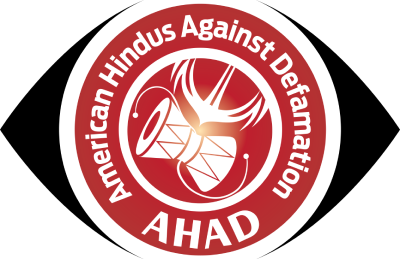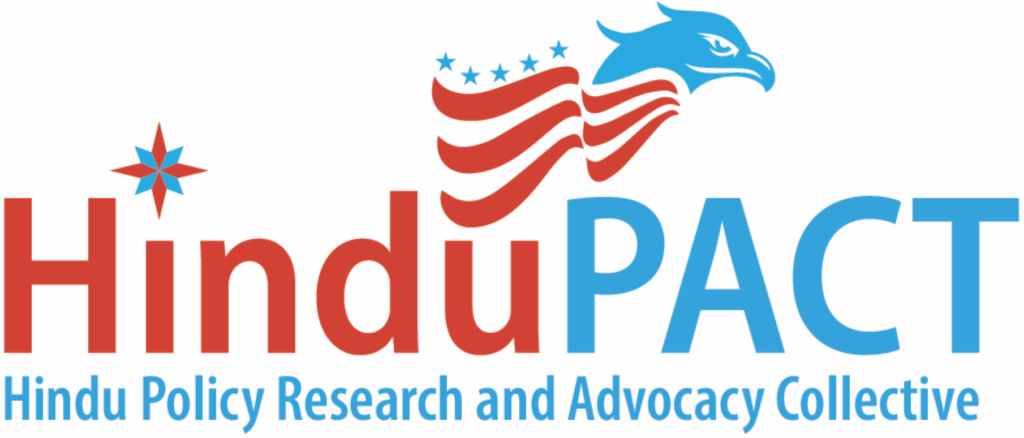(This report utilizes SamyaTattwa for Hindu News by American Hindus Against Defamation (AHAD), technology provided by tattwa.ai)
Published March 26, 2025, 2025
Debunking USCIRF’s 2025 India Report: A Hindu-Centric Counter-Narrative
The 2025 Annual Report of the U.S. Commission on International Religious Freedom (USCIRF) once again recommends India for designation as a “Country of Particular Concern (CPC).” This characterization is based on allegations of systematic religious freedom violations and communal intolerance under the Narendra Modi-led Bharatiya Janata Party (BJP) government. However, a closer examination reveals the report to be ideologically biased, factually inconsistent, and strategically silent on critical Hindu concerns.
- Religious Freedom and India’s Pluralistic Core
India’s Constitution enshrines religious freedom under Articles 25–28. Minorities in India are not only protected but flourish—evident in the robust presence of over 200 million Muslims and more than 30 million Christians. The USCIRF paints a distorted picture by ignoring India’s civilizational ethos grounded in mutual respect and pluralism. As Mahatma Gandhi stated, Hinduism is not dogmatic; it accepts multiple paths to truth. Hindu dharma encourages coexistence, not coercion.
Organizations like the Rashtriya Swayamsevak Sangh (RSS), often vilified in the West, work tirelessly through over 150,000 service projects across India. Far from being divisive, RSS promotes national unity, cultural pride, and community upliftment.
- Misrepresentation of CAA and NRC
The USCIRF condemns India’s Citizenship Amendment Act (CAA) and the National Register of Citizens (NRC), suggesting these laws target Muslims. This is misleading. The CAA offers refuge to persecuted non-Muslim minorities from Pakistan, Afghanistan, and Bangladesh—nations where Hindus, Sikhs, and Christians face existential threats. The law does not exclude Muslims from citizenship under normal processes; it merely corrects a historical and humanitarian imbalance.
The NRC is a neutral citizenship documentation effort and not inherently communal. Its misrepresentation ignores the mass exodus and genocide of Hindus from Pakistan and Bangladesh—facts amply documented by human rights trackers and Indian national records.
Moreover, opposition to CAA-NRC has been exploited by radical elements like the now-banned Popular Front of India (PFI), which used violent protests and misinformation campaigns to polarize society.
- Ram Mandir and Historical Justice
USCIRF’s accusation that the Ram Mandir in Ayodhya was built on a “razed mosque” is a deliberate whitewash of legal and historical facts. The Supreme Court of India, after an exhaustive evaluation, affirmed that a pre-existing non-Islamic structure lay beneath the Babri Masjid. Archaeological and textual evidence confirmed its Hindu origins.
The temple’s consecration was not mob action but a lawful and symbolic correction of historical injustice. The USCIRF’s framing is not only biased but also dismissive of centuries of Hindu cultural trauma inflicted through temple destruction under successive Islamic regimes.
- Anti-Conversion and Cow Protection Laws
State-level laws prohibiting forced conversions or cow slaughter are not discriminatory but protective. Tribal and Dalit communities are often targeted by foreign-funded missionary organizations using coercive means to convert. These laws aim to preserve religious and cultural autonomy for vulnerable communities.
Furthermore, cow protection is an emotional and economic issue for Hindus. Select vigilante acts are not government policy, and Hindu leaders have unequivocally condemned violence. USCIRF fails to mention this nuance while ignoring the aggressive proselytization and social disruption caused by evangelical groups.
- FCRA and UAPA: Tools for National Security, Not Religious Targeting
The report claims India misuses the Foreign Contribution Regulation Act (FCRA) and Unlawful Activities Prevention Act (UAPA) to harass minorities. In reality, these legal instruments target NGOs and individuals engaged in financial misconduct or links to terror outfits.
Several NGOs—including those run by Christian and Islamist groups—have been found violating FCRA norms, diverting funds for conversion or seditious activity. UAPA has been instrumental in curbing Islamist terrorism and Maoist insurgencies, which have killed thousands of civilians and security personnel.
Crackdowns on such groups are national security measures, not religious oppression. India, unlike authoritarian regimes, uses judicial processes and grants legal recourse to the accused.
- Transnational Allegations and Sikh Separatism
The USCIRF criticizes India for allegedly targeting Sikh separatists abroad. These claims are speculative and politically charged. Khalistani extremism poses a global terror threat. Indian actions, if any, are in response to attacks on its diplomats and the promotion of secessionist violence. Labelling such countermeasures as repression whitewashes the violence perpetrated by these groups.
- Hate Speech and Vigilantism: A Misleading Narrative
The report paints a bleak picture of India as a country riddled with hate crimes against minorities. However, most incidents cited are isolated and legally addressed. India’s judiciary and state governments have prosecuted both Hindu and Muslim offenders without fear or favor.
Meanwhile, attacks on Hindus—such as temple desecrations in Kashmir and communal violence in West Bengal—are either omitted or downplayed. This one-sided portrayal further erodes the report’s credibility.
Conclusion: Ideological Blindness Disguised as Advocacy
The 2025 USCIRF report relies on selective data, ideological narratives, and omissions to portray a Hindu-majority democracy as oppressive. Its framing of Hindutva as inherently fascistic dismisses the indigenous Hindu civilizational revival underway—a revival rooted in dharma, justice, and self-respect, not intolerance.
India’s social challenges are real, but they must be evaluated in a balanced, context-rich framework—not through the lens of Abrahamic exceptionalism or geopolitical agendas. If USCIRF truly values religious freedom, it must shed its colonial mindset and engage with India’s complexity, rather than demonizing its Hindu identity.

